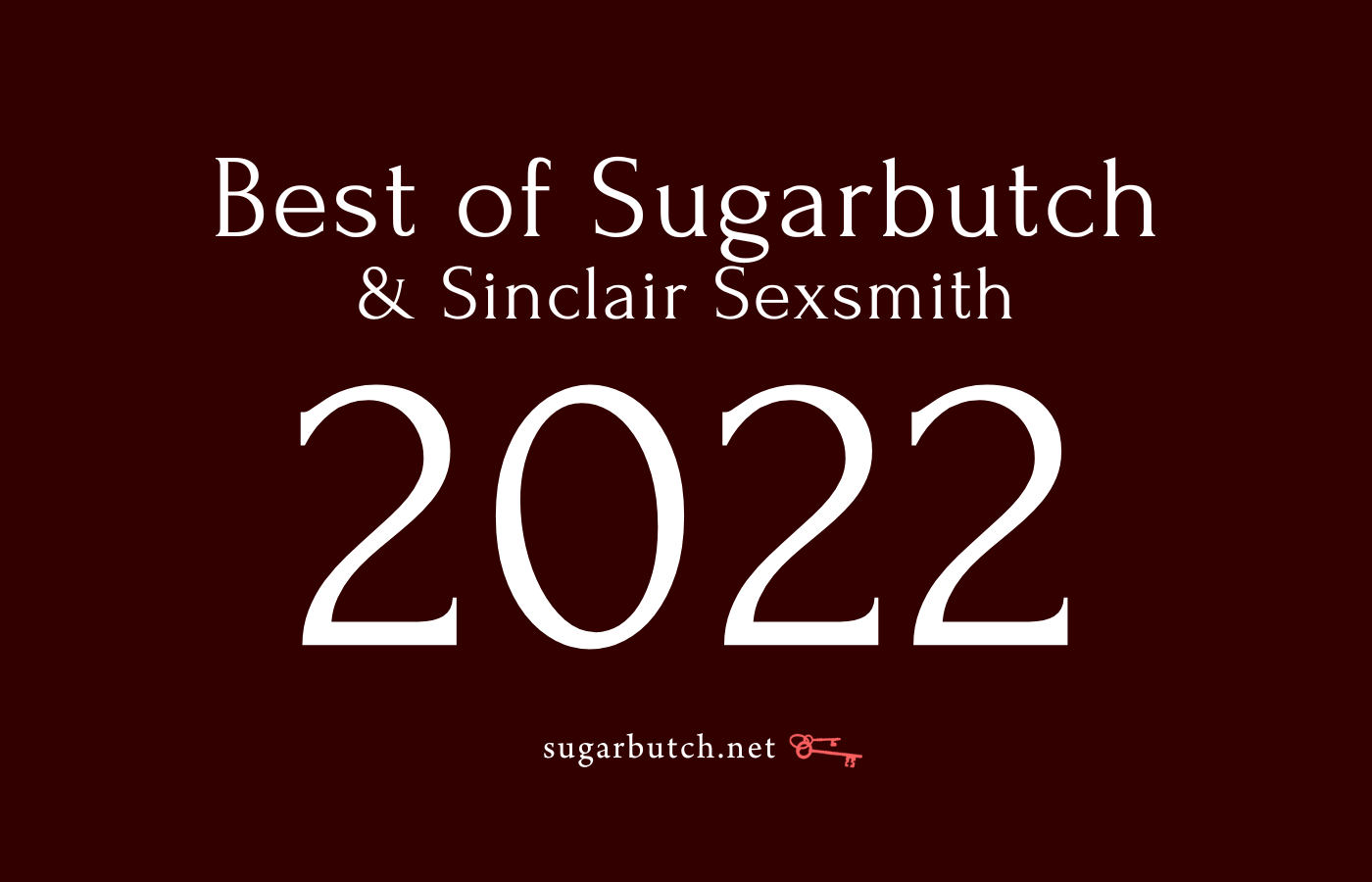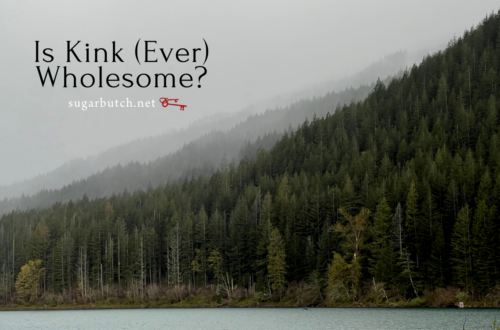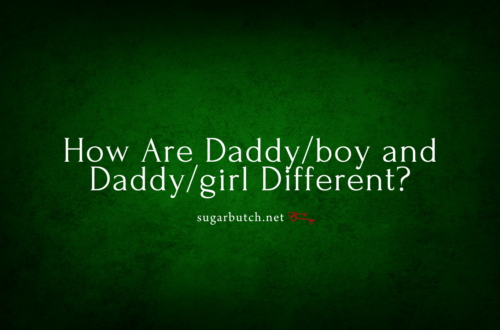I did not ever mean to attempt that there is some hierarchy in having an “intentional gender” verses a “natural gender.” Actually, I’m kind of mad that anything I wrote even sparked those two differentiating terms, I really don’t like that distinction.
Contemporary gender theory says that there is no such a thing as “natural” gender, that all gender is a performance of some sort of impression of what gender is, of what physical cues for mating, attraction, sex, and physical communication between people.
Some people spend time studying gender, some do not. One of these things is not better than the other. I am not better because I study gender than someone who does not. It’s just something that I do, something others do not do.
I find it to be a fascinating, near endless, relevant, and insightful pursuit. But others may disagree with me – others, still, say that flyfishing, or American football, or taxidermy, are fascinating, near endless, relevant, and insightful pursuits; I don’t necessarily find that any of those things resonate with me, so I don’t study them.
But in choosing a romantic partner, a sex partner, a (dare I say it) girlfriend, I have some requirements. Yes, I know my standards are probably ridiculously high. But what can I say; I haven’t been single all that long (Callie & I broke up just over a year ago – it continues to feel like it’s been five years, three years, two years at least!), and I am not in any hurry to get heavily involved (read: monogamous) with someone. One of the requirements that I have – at this point – is that someone I date have things to add about all of this gender stuff that I kick around on a near-daily basis. I’d like those conversations to be collaborative, or at least complimentary. A slow building of an understanding of how this specific language of physical codes and symbols works.
I’m going to say it again, here, just in case it wasn’t clear enough: there’s nothing wrong with not being “intentional” with one’s gender.
I mentioned Penny’s lack of intentional gender not with judgment but thinking that this is something that I require in my relationships, and that perhaps it is not an interest she wishes to spend her time on and explore. We are both interested in sex, my interest and expertise is gender, and her interest and expertise is in relationships (she wants to go into couple’s counseling). Actually, I probably know about as much about relationships as she does about gender – I know quite a bit, in some ways, I’ve read many books, I’ve taken classes, I’m even familiar with much of the psychological theory, but it’s less my field of focus. Ditto to her and gender. She’s read the books, taken the classes. But it’s not necessarily a tool she uses to see the world on a daily basis.
As a small footnote, I had that difficult conversation with her on Friday, and we spent a lovely weekend together. We talked openly, things deepened, we got closer. I was half-expecting things to end, but instead, they got much better.
I’m working on writing up some sex stories from the weekend. I’m increasingly impressed with Penny’s kink, eager exploration, drive, and sexy fucken mouth … as a friend of mine said tonight, not only is she keeping up with me, she’s giving me a run for my money.




This is a great post, because i've been thinking A LOT about your other post about intention and gender expression. One of the big queer issues for me is that I am femme, without at all intending to be femme, and that I am exclusively attracted to butch womyn, even if they don't intend to present/identify as butch. So the previous post really gave me a lot to think hard about, and now this one does as well. I certainly don't have any answers for my own self, just thoughts to ponder.
Heh, nothing is going to change my love (read adoration) for those butch dykes, though!
I think having a partner who understands gender and uses it as a lenses through which to view the world really can strengthen the dynamics of a relationship. Even when you disagree, those moments are challenging and can bring you together in really intimate ways. I am constantly in awe of the common ground my girlfriend and I share; the unspoken understandings, the deep appreciation we have for each other as whole people, the affirmation we can give one another and I think a lot of that is only possible because we do have the same sense of intentionality. Not to mention, the intelligent and articulate conversations around sexuality and gender make for some very good foreplay.
Not to mention, the intelligent and articulate conversations around sexuality and gender make for some very good foreplay.
Amen to that, dylan!
i can't access the other post, and i'd really like to be able to if that would be ok, because i think it's likely that i project to the world an attitude that might suggest that i place intentional gender as 'better' than non-intentional. as it is, i agree with what you've said in this post. gender is what i do, academically, in my work, and in my life, so it's a lot like choosing to date someone who has the same interest in… doing craft! as you do.
an i again would like to reiterate dylan's point.
First off, I'd like to say that I, personally, didn't perceive you as ranking gender intentionality over a lack-thereof. But then I want to make a comment on the utility of certain terminology. In particular, I want to say that "natural" (which, to my recollection, you didn't use) seems a bad, triggery, and inaccurate word because, yes, gender is a social as well as a biological construct (in fact it is primarily a social construct, at least in a practical sense, whether or not there is a biological aspect to which gender role individuals are drawn to – a topic I just read 22 two page papers on and really am just not in the mood to go into), and "natural" implies some sort of fixed state that is not affected by one's surroundings. I suspect, or at least hope, that what most people are actually _thinking_ about, with respect to these things, is conscious vs. unconscious expression of gendered traits. Which is the spectrum that, personally, interests me. It seems like there's a range (which I shan't number since numbering would imply a ranking) from:
* A person who unconsciously follows the expected gender roles dictated by their biological sex and societally perceived gender in their society (oh, scripting theory, how I find you fascinating! Because of you I must include both biology and perception when defining where people would fit, by default, in the social order) – This, I expect, is what people might mean by natural (bleck!) gender
* A person who unconsciously exists in a way that subverts or ignores the expected gender roles dictated by their (yada yada yada)
* A person who is conscious of the expected gender roles, and specifically doesn't let them impede their behavior… but who does not engage in a conscious expression of gender, as such.
*A person who expresses their gender consciously – whether or not that is the gender dictated by their (yada yada yada) – This is what I suspect people mean when they're saying they have gender intentionality.
Anyway, I find the whole conversation fascinating, because gender just hasn't been that relevant to me in my relationships, either with men or with women. That is, I suspect, because in my life gender is primarily important to me when I get smacked down for failing to conform to people's expectations, and I've never dated someone where gender-based expectations were an issue. Why is gender not important to me in my personal life? It's certainly not from a lack of academic interest. As I've been babbling out this comment, it occurs to me that it's probably because my comfort zone is smack-dab in the middle of the gender spectrum. Interestingly, in retrospect, this has been true for most of my female partners, but _not_ for my male partners – who tend to be more clearly gendered either in one direction or the other. Which may be more a perceptual difference than a factual one, since I suspect that, because of social acceptability issues, mild lack of conformation to gender expectations may read more visibly in men then it does in women.
I claim femme as my gender with a great deal of thought and intention, and it is something that colors everything I do. It feels organic to my nature, and fits me very well, and makes me feel sexy and fulfilled in ways I never have before.
however, I didn't identify as femme for some time, even though that is how people perceived me and tended to assign my gender, I suppose responding to my "natural" femmeness. That is to say, I had my hair long, and I wore skirts and dresses on occasion, along with jewelry, makeup. etc.
so to me, there was a very big difference between an intentional occupation of femme as a gender identity, and looking and being perceived as femme.
and Dylan's so right, it's great foreplay. there is nothing hotter for me than the butch-femme dynamic, so for me, the more intentional, the better. there's just something very sexy about the self-determination and consciousness of gender play.
p.s. this is not to imply any judgment on intentional vs. untintentional femmeness. just that I've done both, and intent was a whole different ball game for me. and now I know that intent – mine, and that of the butch meeting me there – is a big part of my kink.
I've been trying to figure out how to articulate my view on intentional/natural. I do feel like I've sort of "discovered" the gender that suits me most, the gender that at least -feels- natural to me. I take that easy, comfortable gender and present it to the world intentionally. So I guess I am an advocate for a "natural" gender, only in the sense that one's own personal gender should becoming apparent either by surprise, or through self exploration. Then, we can choose to just be ourselves (unintentionally), or we can link it to our politics on gender (intentionally). Does "intentional" refer to our performance, or our politics?
[ I don't think "natural" is the opposite of "intentional," and I think "natural gender" is really problematic, as gender is so culturally based. That said, there are certain things that "just feel right" or "come easily" to us, and I think that *is* our "natural gender" … And yes, I'd agree that gender should absolutely come through self-exploration. And we should absolutely "just be ourselves" – the intention comes from knowing ourselves, from knowing why we are the way we are, from doing our gender in ways that are celebrational and that don't hurt ourselves or others. It's basic self-awareness, really. – ss]